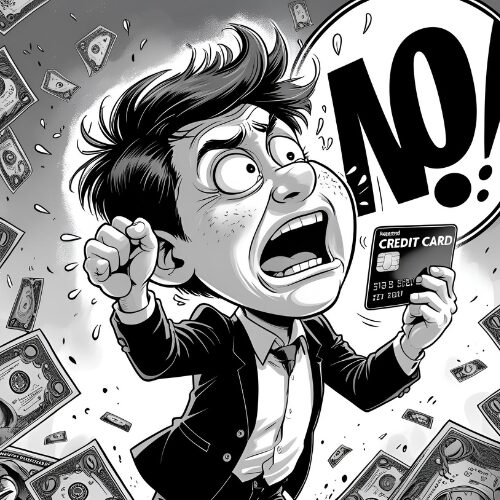Financial strategies for women with ADHD
ADHD is not one size fits all, and neither are the financial strategies that will work best.
However, there are some common financial strategies that tend to be most effective for people with ADHD, and some that may be less than helpful or even detrimental.
Automated Savings Transfers
Automated savings transfers can be your best friend.
Two caveats to note:
- No matter how you set it up, this will work best if you have no access or visibility to the savings account without jumping through several hoops. In other words, a savings account tied directly to your checking, especially if you can easily move that money with two clicks, will likely not be effective.
- If you can set it up so that an amount is directly deposited into another account entirely with each paycheck, that will typically work very well. Again, this assumes you do not have easy access to the savings account.
For some, it may be very helpful to explore setting up a savings account with a small, local bank that has limited mobile banking functions. The more you can create little barriers for yourself in accessing that savings account impulsively, the better this strategy will work.
Personally, I’ve also had success with setting up add-on CDs. These are CDs into which you can deposit money, but you cannot easily move the funds without contacting the bank, and you will incur a financial penalty if you move it before the CD matures. Again, it may be helpful to look at smaller, local banks that lack robust mobile banking. You do also usually have to deposit a certain amount to open an add-on CD, but there are options that are as low as $250.00.
If you read about add-on CDs online, you will find many experts telling you that they don’t have the highest interest rates. That’s true, but you need to be clear on why you are doing it. A high interest rate is of no use to a person who can’t hold on to a few bucks to save their life. The point isn’t the interest rate. The point is the additional obstacles inherent in a CD that stops you from sabotaging you.
To circle back a little to another point, the ease of moving money around these days through mobile banking apps, at least when it comes to savings, can work against people with ADHD.
When I think about this, I think about a former co-worker whose husband was extremely impulsive (for what reasons, I don’t know). She opened a savings account at a small, local bank in the next town over, refused to get checks for it, and cut up the debit card when it arrived. She would withdraw cash from her regular checking account each paycheck, stick it in an envelope, and drop it in the deposit dropbox after hours. Her husband was not listed on the account, though he was aware of it and, in theory, supported the idea of saving.
I’m not saying you have to set up another person to keep you away from your money (though maybe you do), but the idea of setting up a bank account where you deposit cash only, with no additional interactions, upselling calls, or mobile banking, could be something to consider.
Autopay
Put as many bills as possible on autopay, assuming you have adequate cash flow to cover them.
You may need to enlist the help of a trusted family member or friend to get everything set up and ensure that your cash flow will support it. But once it’s in place, and if you can maintain your income, this will be incredibly helpful.
Say No to Credit Cards
I didn’t have a credit card until I was probably 25. I miss those days and wish I had resisted the urge to get one.
If you’re particularly impulsive with spending on little things here and there, do not even let yourself have a credit card.
To add to that: do not do business with a bank that constantly tries to get you to open one after you’ve said no. Banks are not your friends, and they are actively working against you when they do this.
If you insist that you must have a credit card to build credit, do this:
- Get a credit card with a low limit.
- Put one single bill on autopay on that credit card.
- Set up an automatic transaction from your checking to pay that bill.
- Cut up the credit card and never look at the account again (unless the card expires, etc.)
- Do not even think about researching credit cards with fancy rewards programs.
People will talk to you about how you need to request a bigger limit or use more of the credit to increase your score.
Ignore those people.
This method, of putting one single bill on your credit card and setting up an auto pay to pay off the credit card each month, will be enough to get your credit score into the range where you will have access to a favorable interest rate on a mortgage or car loan.
Once you are in that range, a higher credit score than good enough honestly will not make any material difference.

Cash Envelope Method
If you aren’t familiar with the cash envelope method of money management, you can get an overview online here, including some pros and cons.
The cash envelope method is particularly effective if you do the following:
- Set up your automated savings, either by direct depositing to a separate savings account at a different institution, or by setting up an automatic transfer each payday to a separate savings account. I recommend the direct deposit option; it’s more effective.
- Get all your bills on autopay.
- Sit down and figure out your weekly expenses for groceries, household supplies, gas, and other small purchases (it’s okay to build in a little for snacks or treats).
- Cut up all the credit cards and debit cards.
- Swing by the bank the Saturday after each payday (or whatever day works for you) and withdraw the predetermined amount of cash from step 3.
- You now only have that amount of cash to spend.

Now, other financial types might say: But what about an emergency? You need a credit card or a debit card!
Here’s the truth: Yes, there are always pros and cons to any strategy. But the system above will work for you if you’re the kind of person who mostly shops at the same stores, uses the same bank, and goes to work every day.
If you travel for business, maybe that’s a different story.
But a lot of contemporary financial advice will only help you to rationalize feeding the beast. The emergencies! You need to build your credit! You need mobile banking for full transparency!
Well, maybe. Only you can weigh all of that out. But those people saying you need, need, need are going to be nowhere to be found when you’re trying to figure out how to file for bankruptcy or avoid eviction or foreclosure.
Is that extreme? Maybe. Maybe not. I’m staring foreclosure in the face right now, and I can tell you: I didn’t think it would happen to me and there’s certainly no one jumping in to help, despite this kind of cute faux-concern. Because the cute faux-concern is intended to sell you things, and most likely friends and family who repeat that advice don’t have to fight themselves every single day just to keep going.
My point is, get real about your likely level of impulsiveness, and put protections in place. The system above does work, and has worked for me.
But if you abandon it and find yourself underwater (like I am right now), a Band-Aid won’t repair a bullet hole, as the saying goes.

Limit Your Consumption-Oriented Content
If you know you have a weakness for pretty things (maybe cozy home accessories make you lose your mind, or the latest tech gets your heart pumping) then you need to do the following:
Avoid consumption-driven media. Don’t read online shopping listicles. Don’t watch videos about the latest tech. Stay far away from clothing “haul” videos or anything that encourages you to buy, buy, buy.
In short, again: do not feed the beast, people!
Or at least try to put him on a diet, but I think in this case cold turkey is best.
Above all, think about the K.I.S.S. philosophy: Keep It Simple, Silly.
- Do your banking with two banks only. Maximum of three.
- If you must have a credit card, make it one. Maximum of two.
- Do whatever you can not to open accounts with every bank or lender offering whatever tempting incentive.
If things do go south—hopefully only temporarily so—, and you haven’t kept it simple, you’ll find yourself tangled in an overwhelming web of accounts, transfers, autopays, and confusion. I’m speaking from experience here.
Be very cautious with the following strategies:
- Hiring a financial planner or coach. Yes, this can be awesome with the right fit! But there are a lot of unethical people out there, with hidden fees, shady practices, or just a lack of experience disguised in pretty packaging. Even if you find someone “ethical” by industry standards, remember: they won’t act in your best interests unless your best interests align perfectly with theirs.
- Personal finance apps. Oh yeah, they all sound like magic solutions. But they aren’t. You’ll likely end up with a bunch of apps cluttering your phone, you’ll have given out your personal information everywhere, and you’ll probably feel more scattered and confused than ever. Just say no.
- Complicated investment schemes. Plenty of people will argue with me here, but if your friend approaches you about house flipping, investing in rental properties, buying a property together, or something more nebulous, be extremely cautious. It’s very easy to get in over your head. If you’re in over your head with a neurotypical person, it could spell the end of your relationship, or even leave you holding the bag in a serious way.
- Ditto for complicated tax strategies. I’ve worked in a tax office and am in the process of eventually obtaining my Enrolled Agent tax credential (currently stalled out on that due to the cost of getting it all done, even though it’s much more accessible than a CPA credential!). So let me point out something here that many people generally don’t seem to understand. Hiring a tax preparer DOES NOT absolve you of responsibility for your tax returns and records and does not protect you from consequences. If you have managed to hire an ethical tax preparer, they will help you navigate and fight any disputes, yes. But their name on your tax return means squat as far as avoiding repercussions for something that the IRS or state taxing authority takes issue with.
Do I sound like I’m taking a very defensive stance here? You betcha. The world is as predatory as it ever was, and people with ADHD make for very tasty prey (until their bank accounts are drained, of course).
Read Part 1: Challenges upon challenges here.


